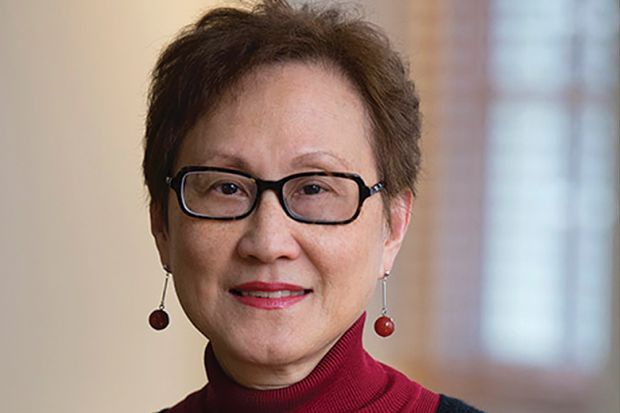A literary scholar who became a leading expert in Chinese literature and digital media has died.
Jing Wang was born in Taipei, Taiwan, in 1950 and studied foreign languages and literatures at National Taiwan University (1972). She then moved to the US for an MA in comparative literature at the University of Michigan (1975). She would later gain a PhD in comparative literature at the University of Massachusetts, Amherst (1985).
After starting her career as an instructor in Chinese language and literature at Middlebury College in Vermont (1982-85), Professor Wang spent 16 years at Duke University in North Carolina, eventually as professor of Chinese literature and cultural studies. Though she initially made her mark with a prize-winning study of classical Chinese literature, The Story of Stone: Intertextuality, Ancient Chinese Stone Lore, and the Stone Symbolism of Dream of the Red Chamber, Water Margin and Journey to the West (1992), she became increasingly aware, as she once told an interviewer, that her field of comparative literature was branching into “the study of contemporary popular culture. So I sort of made that turn, reoriented my research.”
This would eventually bear fruit in books such as Brand New China: Advertising, Media, and Commercial Culture (2008) and The Other Digital China: Nonconfrontational Activism on the Social Web (2019). But it also led Professor Wang to develop several activist initiatives after she joined the Massachusetts Institute of Technology in 2001 as S. C. Fang professor of Chinese languages and culture.
She was the founder of the MIT New Media Action Lab, which researches technological solutions for developing countries to “alleviate the symptoms of the digital divide”. She was also the founder and secretary general of NGO2.0, which she described as a project to “help improve the digital literacy and social media literacy of grassroots [non-governmental organisations] in the underdeveloped areas of China” and thereby “enhance [their] capability for social innovation”. And when her daughter Candy Wei took her own life at the age of 20 in 2001, Ms Wei’s parents set up a travel scholarship fund at the University of Michigan School of Art & Design in her memory.
Emma Teng, T. T. and Wei Fong Chao professor of Asian civilisations at MIT, described Professor Wang as “an innovator, activist and passionate teacher” whose “long career was defined by her intellectual curiosity, drive and energy, and unwavering integrity…She was a dedicated mentor to so many of us, and cared deeply about social justice for Asian Americans. And everyone fondly remembers her gourmet cooking.”
Professor Wang died following a heart attack on 25 July.

